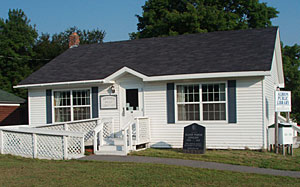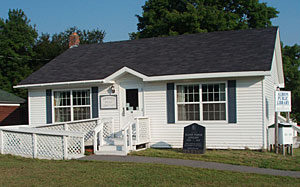Putt 4 Cass slated for May 18

Big Sister Paige Lilly and her “Little Brother” Hunter Stevens, came out to support the program that brought them together two years ago by participating in last year’s “Putt 4 Cass.” (Contributed photo)
Big Brothers Big Sisters of Mid-Maine (BBBSMM) will celebrate the life of Cassidy Charette by raising money and awareness for local youth mentoring programs at a mini-golf fundraiser “Putt 4 Cass” on Saturday, May 18, 10 a.m. to 2 p.m., at Gifford’s Famous Ice Cream & Mini Golf, in Waterville. (Rain date May 19.) Cassidy was a junior at Messalonskee High School when she was killed in a hayride accident Oct. 11, 2014. Since her passing, her school and its surrounding communities continue to honor and remember the teen whose passion was helping others.
The third annual mini golf event invites schools, businesses, athletic teams, clubs and organizations to form mini golf teams of four players, choose their preferred hour to golf, register online and raise funds for local BBBS mentoring programs, then join the community on May 18 to “Putt 4 Cass.” Last year’s event raised almost $20,000 for local programming.
“Putt 4 Cass” will include course challenges with hourly prizes, ShineOnCass T-shirts for team fundraising, and Gifford’s Famous Ice Cream. Volunteers are welcome. Walk-ins will be accepted, as space allows, for a $20 donation.
Charette was a long-time volunteer for BBBSMM and advocated for a school-based mentoring program at her high school. In her memory, Big Brothers Big Sisters created two school-based programs pairing Messalonskee high school mentors (Bigs) with youth facing adversity (Littles) at Atwood Primary and Williams Elementary schools in Oakland. A third program at the Boys/Girls Club and YMCA at Alfond Youth Center in Waterville, matches kids in the after-school care program with high school “Bigs” from Messalonskee, Winslow, Waterville and Lawrence high schools. More than 100 youth are being served through ShineOnCass programs.
To register a team, sponsor, volunteer, or for more information, call Mae Slevinsky at 592-4616, email mae@bbbsmidmaine.org or visit www.bbbsmidmaine.org.



 Springfield College, in Springfield, Massachusetts, named the following local students to the dean’s list for academic excellence for the spring 2018 term.
Springfield College, in Springfield, Massachusetts, named the following local students to the dean’s list for academic excellence for the spring 2018 term.





